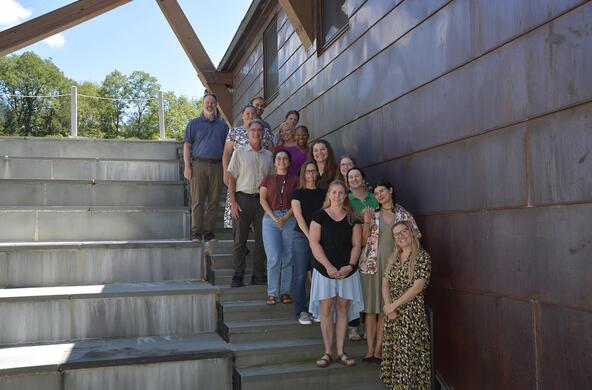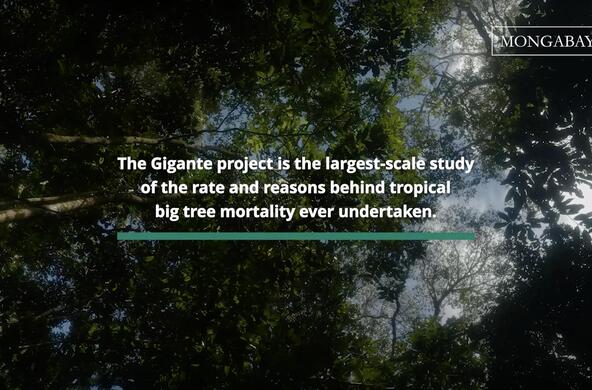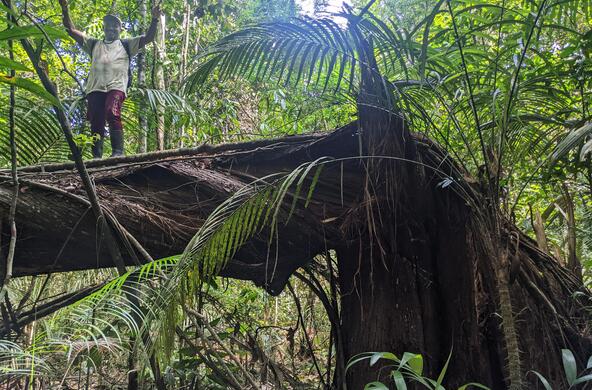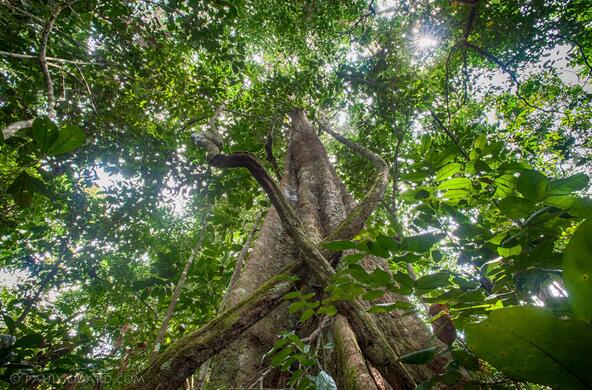- Profile
- Publications
Evan Gora is a forest ecologist investigating how disturbance and decomposition shape forest ecosystems in the context of global change. Plants play crucial roles in supporting biodiversity and nutrient cycling globally. However, plant mortality rates are shifting with climate change, putting these key functions at risk. Gora’s work aims to understand when, where, and why plants die in nature, and what their deaths mean for forest ecosystems. This work helps us understand the current stressors affecting forests so we can predict forest change and manage forests for a better future.
Gora studies local patterns and processes of plant death, then uses ‘big data’ from forest plot networks, satellites, drone imagery, and other sensors to scale these findings up to the landscape and beyond. Currently, much of his research focuses on the deaths of giant tropical trees and the effects of a rarely studied phenomenon — lightning — and how it is transforming the composition of forests and their capacity to store carbon. Gora works at field sites throughout the tropics, from Panama and Brazil to Cameroon and Malaysia.
After plants die, they decompose. The process of decomposition is extremely variable, and it determines how quickly carbon is emitted to the atmosphere. Gora explores how environmental conditions, biogeochemistry, and microorganisms shape rates of plant decomposition and carbon release. This work has expanded to include research exploring how the diversity and function of microbial life changes from the forest floor to the canopy.
Gora holds a dual appointment as an Earl S. Tupper Fellow of the Smithsonian Tropical Research Institute.







